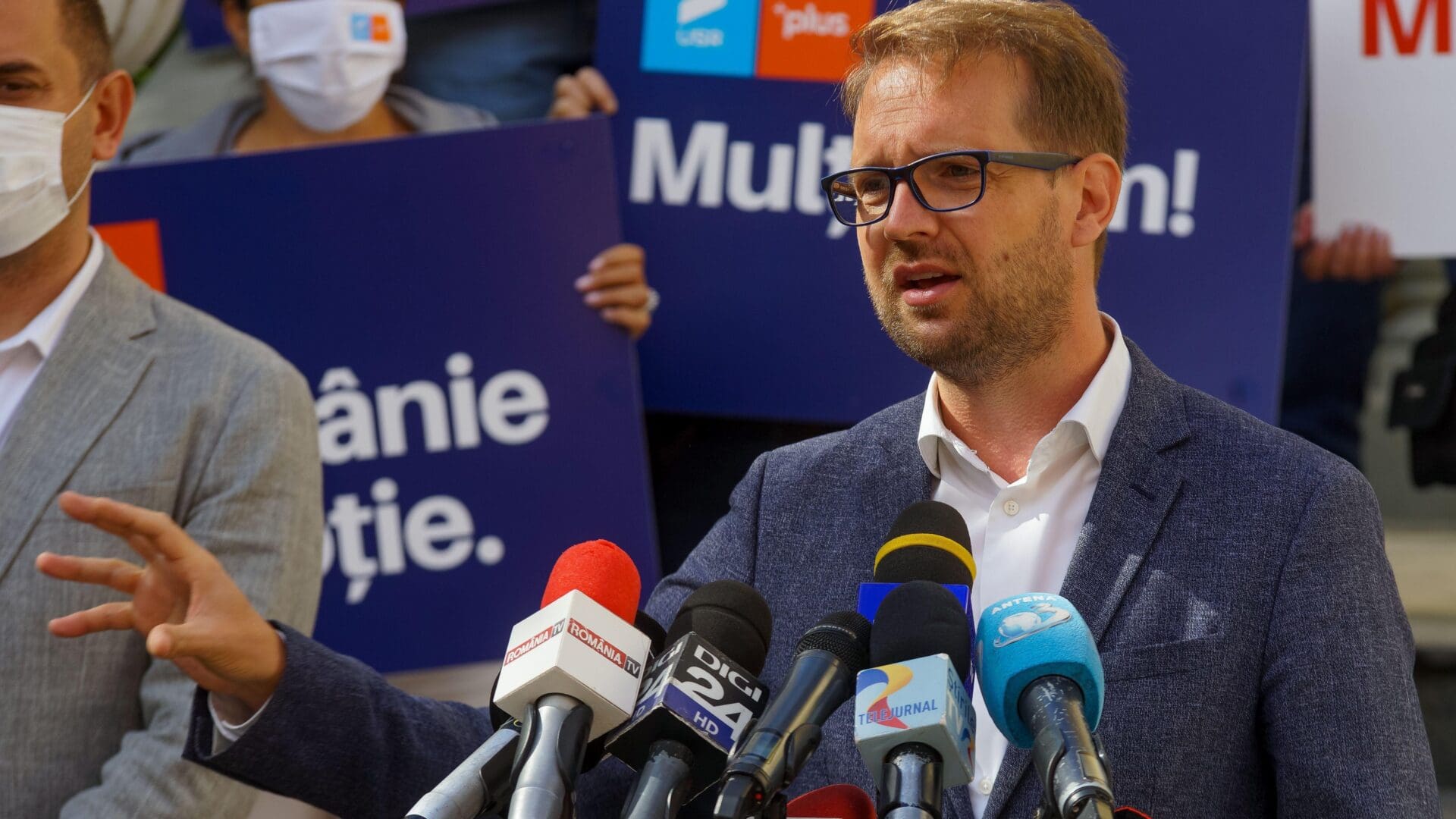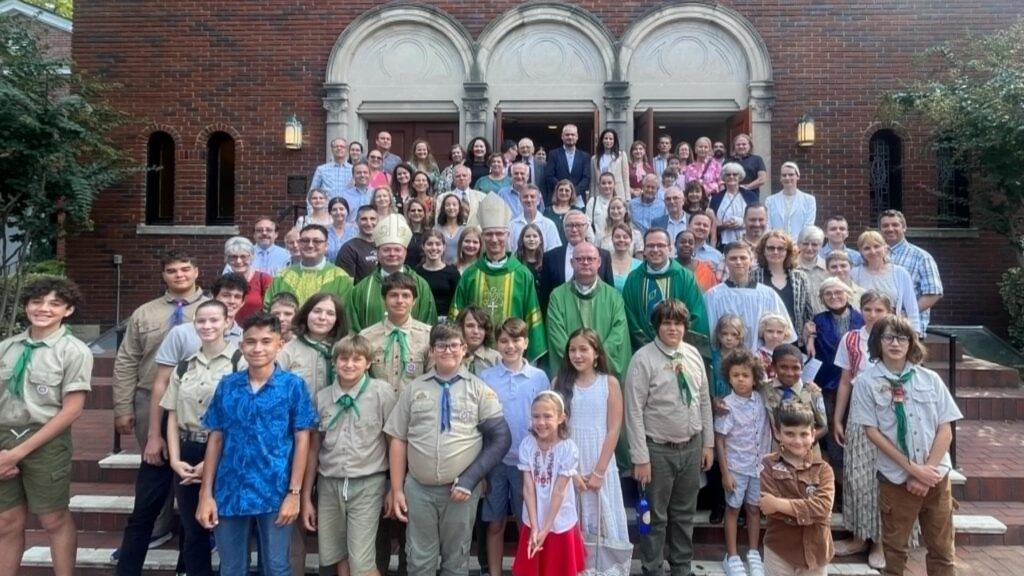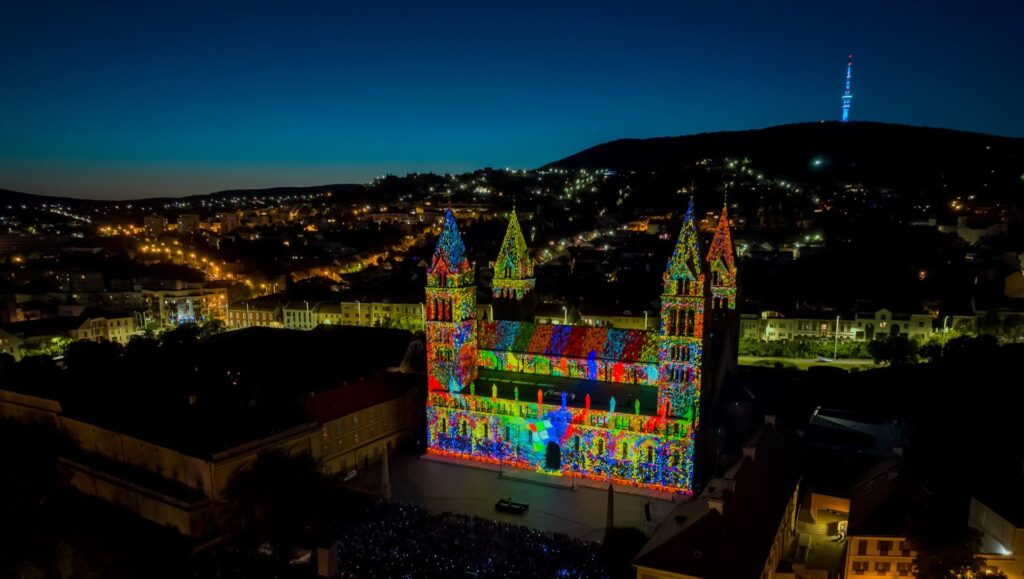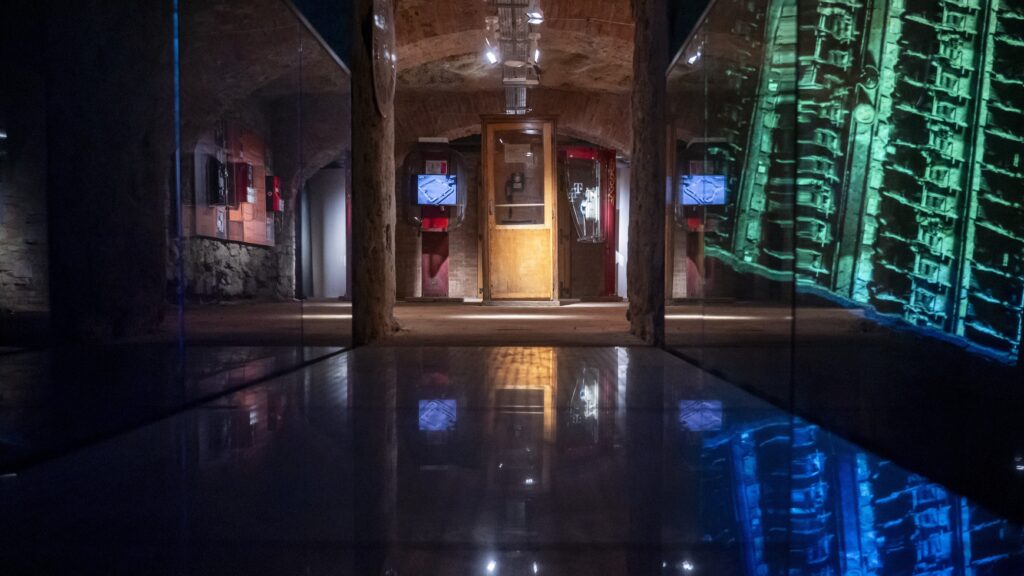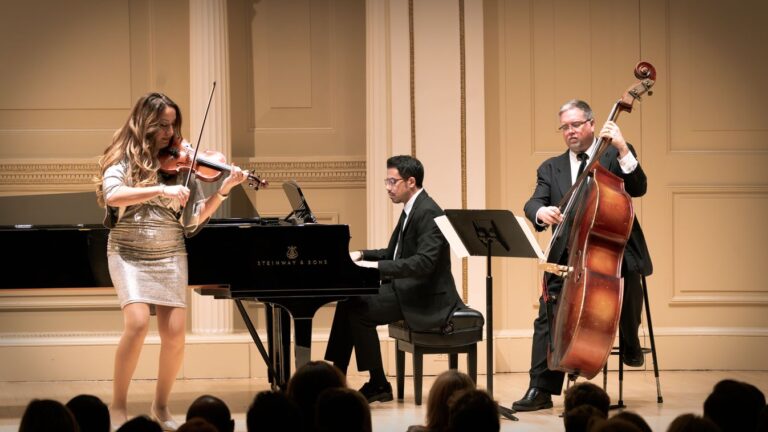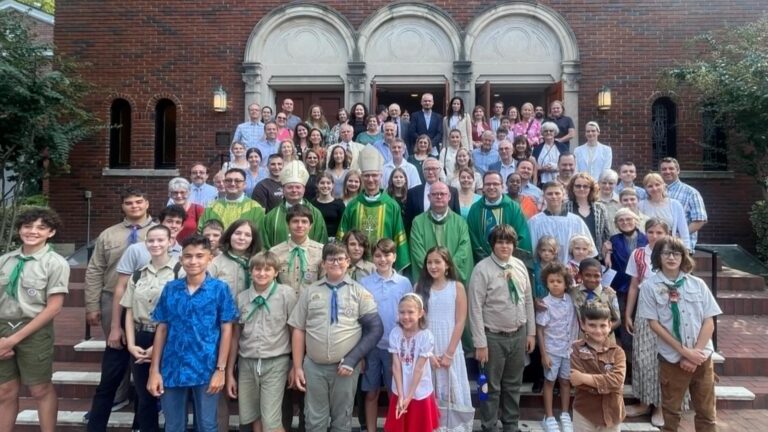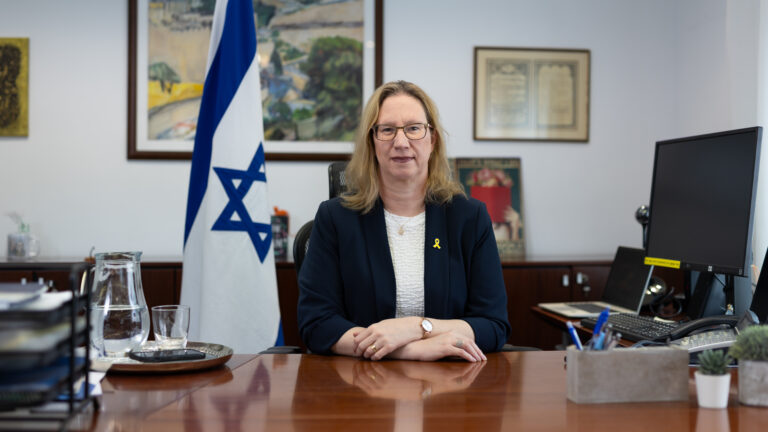Dominic Fritz is a German politician who has been serving as the mayor of Timișoara (Temesvár) since 2020. He is the only mayor in Romania without Romanian citizenship. Prior to becoming the mayor of Timișoara, Fritz was a member of Alliance 90/The Greens between 2009 and 2019 and also a political advisor to former German president Horst Köhler between 2016 and 2019.
In 2023, Timisoara is one of the European Capitals of Culture. What is it that the city is the most excited to show about itself to the public?
I’m very excited about the fact that Timisoara will shows a side of Europe that I think many people are not aware of. Timisoara has been a European city for hundreds of years. We have had minorities and majorities of different ethnic groups living here peacefully with each other, Hungarians, Germans, Romanians, Bulgarians, Serbians. And all this diversity of Timisoara has been an engine of innovation throughout the centuries. Timisoara has always been a city that was avant-garde. And I think this is something that tells us a story about Europe, but a story that is not heard enough on the continent, and is not known enough, especially in Western Europe, where they believe that they have invented Europe. And this is why I’m so excited that we’re a Capital of Culture because we will be able to tell our story, a story that is relevant in all the European debates that we are having these days.
It is not only its ethnic diversity, but the 1989 protests against Communism that also fundamentally informed the city’s historical experience—how do these experiences contribute to Timisoara’s role as a Capital of Culture?
Well, I think all those issues are connected. I mean, if we look at how the revolution started in 1989, it was a revolution that started in front of a Hungarian church and suddenly the Germans came and the Romanians came and suddenly it became a thing of the whole community of all ethnic groups and it turned very quickly into a call for freedom. And in that way, Timisoara was the first city free of communism in 1989 in Romania. It was the city where the revolution that basically ended communism in Romania started. And again, in that respect, it is a city that has always been fighting for European values, for freedom, for respect, for human rights. We are very proud of that heritage and I think this is a message again that needs to be heard again and again. Europe and freedom and respect for all the citizens is not something that we cannot take for granted, but it’s something that we always must fight for. We see that in Ukraine now. And I think this is why the story of the revolution in Timisoara that was also a bloody revolution where people died needs to be told and needs not to be forgotten.
What do you think the greatest contribution of Timisoara’s Hungarian population has been to the city?
Well, up to the early 20th century, the main languages spoken in Timisoara were Hungarian and German. At the beginning, maybe in the 18th century, German was a bit more used, then later Hungarian. And we had great Hungarian artists and architects. Many, many of the great historical buildings that we have were designed by Hungarian architects.
I think up to this day the multicultural identity of Timisoara is owed also to a very open and creative Hungarian community.
We’re very happy that up to this day we have a Hungarian theatre. We have a Hungarian secondary school, a Hungarian kindergarten and a very active Hungarian community.
Do Hungarians continue to shape the cultural life of the city? Does the Hungarian community play a role in organising this year as a capital culture?
Yes. As I’ve just said, we have a Hungarian state theatre (editor’s note: the Csiky Gergely Hungarian State Theatre) which is funded by the city, and which performs plays in the Hungarian language, so the theatre is obviously involved in this year’s program. They have several theatre festivals, and they are almost always sold out and not only people who speak Hungarian go there, I myself, I go there, and I don’t speak Hungarian. But they have subtitles projected above the stage and so it’s a very avant-garde theatre. We have a great secondary school, a Hungarian one, many of our Hungarian speaking children go there. They get excellent education there. And as I said, we have a very active Hungarian community. Just recently, an old building that historically has belonged to the Hungarian community has been bought back and we have a little cultural centre established there (editor’s note: Temesvári Magyar Ház/ Timisoara’s Hungarian House). And the centre serves all different kinds of Hungarian speaking communities. We have different churches in the city, different denominations, Catholic, Reformed and Lutheran churches where they all speak Hungarian and those congregations contribute with concerts and with other kinds of events to the programmes of the Cultural Capital of Europe year. So, Timisoara without the Hungarian community and without its citizens who speak both Hungarian and Romanian wouldn’t be the same city. And I think we’re also very proud that we don’t have any kind of inter-ethnic conflicts that they might have in other parts of Romania. Timisoara, and the Banat region has always been a region where there’s a kind of very relaxed and pragmatic attitude towards the relationships between the different ethnic groups. And so, I’m very proud of the Hungarian community in Timisoara.
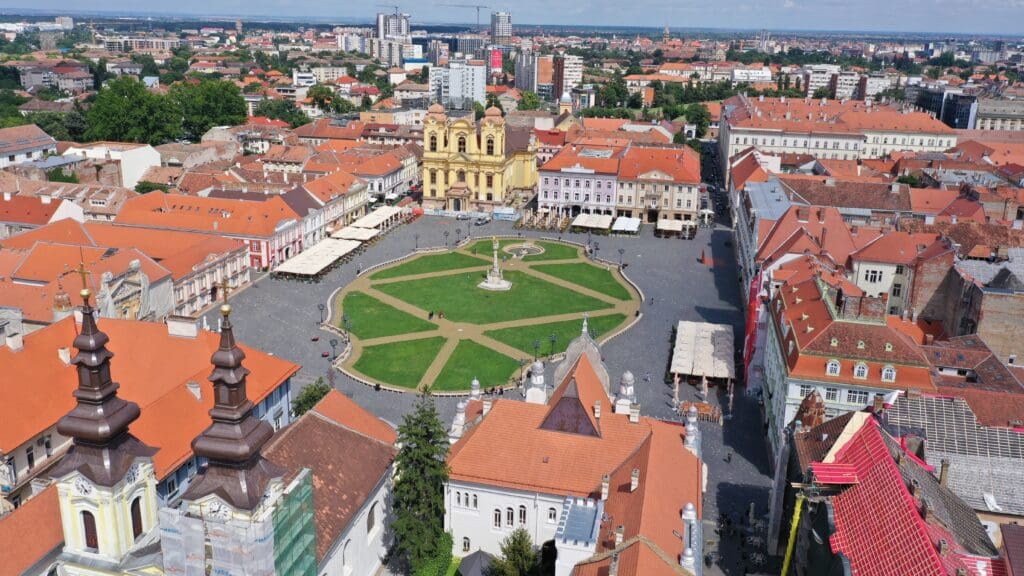
What is the message behind the city’s slogan for the year, ‘Shine your light! ’? Why was this sentence chosen to be the motto of Timisoara?
Well, on the one hand, it’s a kind of a nod to our own history because we’ve always been a very innovative city. Many firsts, technological firsts of the whole region have taken place in Timisoara. We were one of the first cities in the whole of Europe with electrical street lighting. I think you might want to double check this but I think Timisoara had electrical street lighting before Budapest did. (editor’s note: The mayor is right, the city was the first city in Europe to introduce electrical street lighting in1884. At the time Budapest was still using gas lights). And so light up your city reminds us of that. But also, and this is something that I said before, we believe and we have always believed that everybody can contribute to the community. Everybody is important, everybody has dignity. And everybody has a light within, there’s a light within each and every one of us and with that light we can light up the city. And so also the whole programme of the Capital of Culture year is really about how culture and how the arts are not just something that we are consuming, but really something that each and every one of us is contributing to. And how a city can only work if everybody is respected but also everybody has a voice and can contribute not only to culture but to all the social and economic transformation that is happening in a city. So with this slogan, we really want to encourage everybody to make their light shine.
You are a German citizen, one of very few mayors in Europe who head a city located outside their country of origin. Why did you decide to leave Germany, what motivated you to move to Timisoara? What explains your love for the city and your desire to become the mayor there?
Well, I fell in love with Timisoara when I was 19 years old. That was when I came for the first time to Romania, and for the first time to Timisoara. I worked here for one year in an orphanage, and I never fell out of love with the city. I kept coming back, visiting, getting involved in different cultural, social projects and later also in political protest movements. And so at one point, I realised that I love the city so much that I want to be a part of the movement for change, which is happening everywhere in Romania and also happening in Timisoara and then together with my colleagues from the party (editor’s note: the Save Romania Union) whose ticket I ran on, we decided that I would be the candidate. And luckily, Timisoarans agreed that Timisoara needs a new, European, non-corrupt, open, transparent governance and local government and elected me as their mayor.
What is your main vision for the city? What is the main goal you would like to achieve as mayor?
I really think that Timisoara is one of the cities in Europe with the greatest potential, economic potential, creative potential. And for that, we have to make sure to renew our infrastructure, our mobility infrastructure, our building infrastructure, our social infrastructure, the educational and health institutions. But also we need to make sure that we are a city in which every citizen, no matter what his or her background is, can contribute to the community. And if we succeed in that, then I’m sure that once again, Timisoara will be one of the most attractive cities in Europe and attracting not just investors but also tourists and visitors and students. And in that way,
the story of Timisoara, which is a story about diversity, a story about innovation, a story about courage, can continue.
This story will inspire the whole of Europe and will be relevant not just for Romania and those living in Timisoara, but for all Europeans.
The city has a very rich Banat Swabian-German historical and cultural heritage. Does this heritage resonate with Germans who were born and raised in Germany?
It’s a very interesting question because indeed, right now I guess most of the Germans that were born in Timisoara or in the Banat region now live in Germany and we already have the second and third generation of Swabians who emigrated from Romania to Germany. And I think it’s very important that this history of Swabians and the historical link between the city and Germany continues to be kept alive. And I’m very glad that the Swabians, the German Swabians, even if they live in Germany, they’re still supporting Swabian culture in Timisoara and the Banat region. On the other hand, and this is why I think your question is very interesting, people like me, I’m not a Swabian. I don’t have any relatives who were part of the German minority historically in Romania. But I really fell in love with Timisoara because I recognised my own ideals about Europe in this city. And I think that there is a huge interest in Germany but also in other European countries for that rediscovery of European ideals in real life and not just somewhere in some documents in Brussels, and Timisoara is a great example for this. So I’m counting on rising interest for Romania and also for Timisoara in Germany, but also in other countries like France, like Spain, like Austria or Hungary.
You mentioned how the ethnic diversity of the city shaped its historical heritage, but the relationship between the ethnic groups living together in this region was not always easy. Do you think that this year and the programmes organised as part of Timisoara’s Capital of Culture status can contribute to reconciliation?
Yes, I believe so. Again, I believe that Timisoara has a very important story to tell. In 1919, when the Banat region became part of Romania (editor’s note: After WWI, the region was occupied by the Kingdom of Serbia first, only to be later adjudicated to Romania. The Serb troops left the city in 1919) we had on the Unity Square, it’s still called that way, we had on the Unity Square in Timisoara a ceremony where we kind of peacefully let the Serbians attend. There were speeches by the Hungarian representatives, by the German representatives, by the Serbian representatives, by the Romanian representatives and it all happened in a very peaceful atmosphere. (Editor’s note: After WWI, the region was occupied by the Kingdom of Serbia first, only to be later adjudicated to Romania. The Serb troops left the city in 1919). We never had any kind of conflicts here. And I think it’s important to remind ourselves that all the difficulties that have existed and maybe still exist are only one part of the story, and another very important part of the story is what has worked, and what has not just worked but has contributed to prosperity and innovation. Because you see, diversity is extremely important for innovation. If everybody is just like you, no new ideas will be born. You need the confrontation with other ideas, with people who speak other languages, who read other things in other languages, who have another culture. You need this productive confrontation to give birth to new ideas. And I think this is what happened in Timisoara and so I think we can be a good example. And I also think it’s important that we accept Europe, and the borders in Europe as they are now, and we do not nurture revisionist dreams about restore historical borders because then we would end up in a mess, in all kinds of fights again. We have to see the reality as it is now. But we should fight for the right of each and every one of our citizens who have their own cultural identity to be able to live that identity wherever they are. And I’m very glad that in Timisoara we are making that happen.

